NVIDIA’s Groundbreaking Announcements at CES 2025: A New Era in AI and Gaming
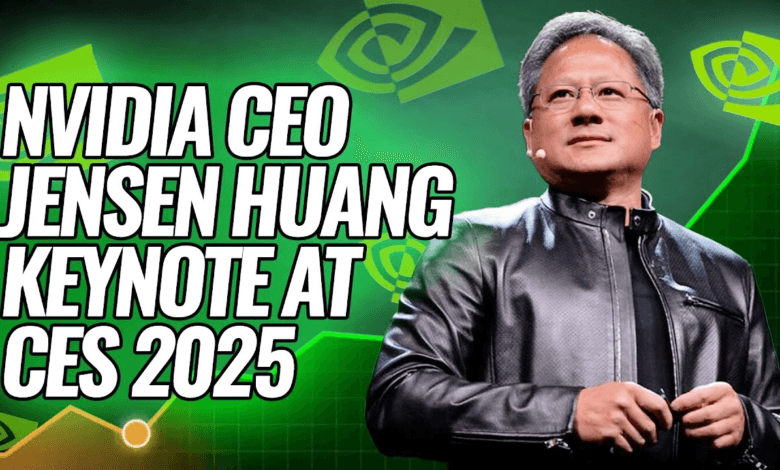
The Consumer Electronics Show (CES) has long been the global stage where innovation meets opportunity. Held annually in Las Vegas, CES serves as the proving ground for breakthrough technologies and global innovators, attracting industry leaders, tech enthusiasts, and media from around the world. The 2025 edition of CES continued this tradition, showcasing a plethora of advancements set to shape the future of technology.
Among the most anticipated events at CES 2025 was the keynote address by NVIDIA‘s founder and CEO, Jensen Huang. Known for his visionary leadership, Huang’s presentations are always a highlight, offering insights into the future of computing and artificial intelligence. This year, he did not disappoint, unveiling a series of groundbreaking products and technologies that promise to redefine the AI and gaming landscapes.
GeForce RTX 50 Series: The Blackwell Architecture
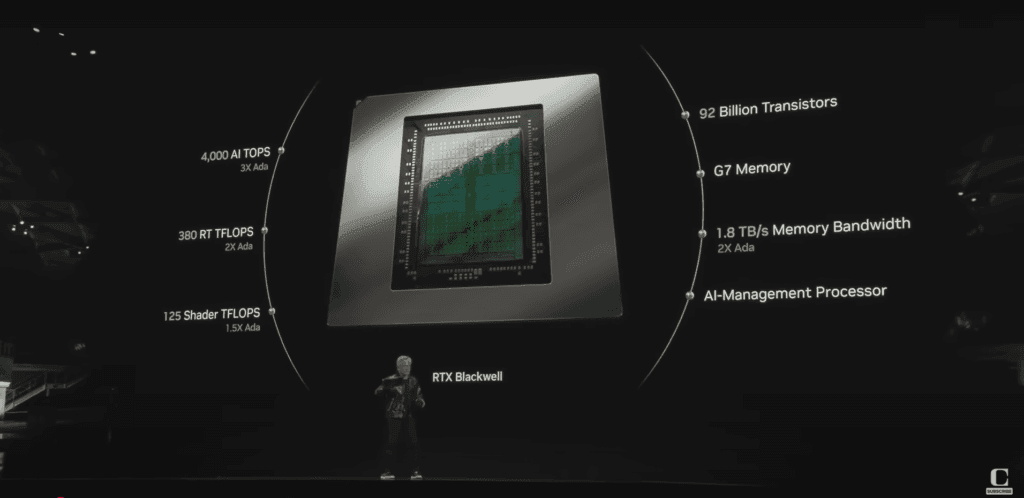
Huang introduced the GeForce RTX 50 Series GPUs, powered by NVIDIA’s new Blackwell architecture. These GPUs are a significant leap forward, boasting 92 billion transistors and delivering four petaflops of AI performance,three times higher than the previous Ada generation. With 380 ray tracing teraflops and 125 shader teraflops, the RTX 50 Series is designed to compute the most beautiful images possible, enhancing the realism and immersion of gaming experiences. The integration of G7 memory from Micron, offering 1.8 terabytes per second bandwidth, further ensures twice the performance of the last generation.
RTX 5070: High-End Performance at a Competitive Price
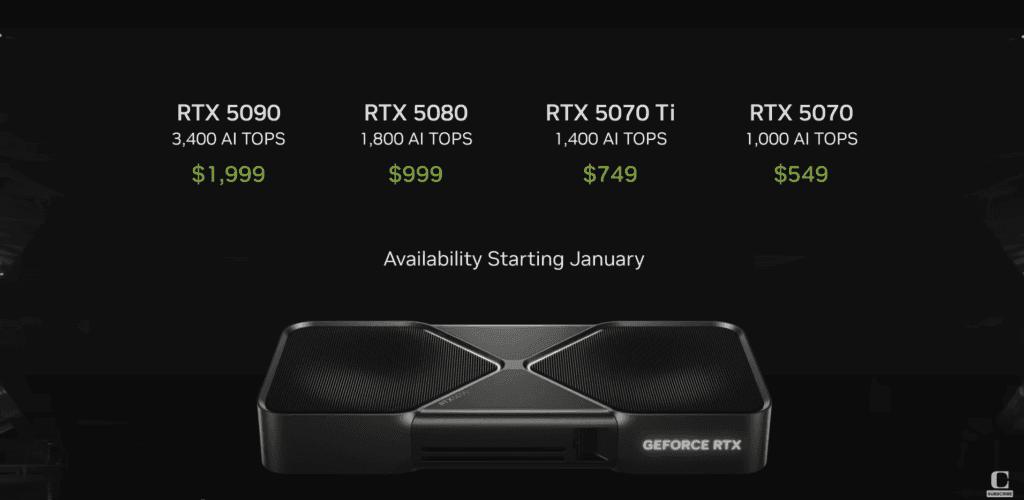
One of the standout announcements was the RTX 5070 GPU, which delivers performance on par with the previous generation’s 4090 model but at a more accessible price point of $549. This achievement is made possible through advancements in artificial intelligence and the powerful capabilities of the Blackwell architecture. The entire RTX 50 Series lineup, from the 5070 to the 5090, offers twice the performance of their predecessors, with large-scale availability starting in January.
RTX 5070 Laptop: Desktop-Class Performance in a Portable Form Factor
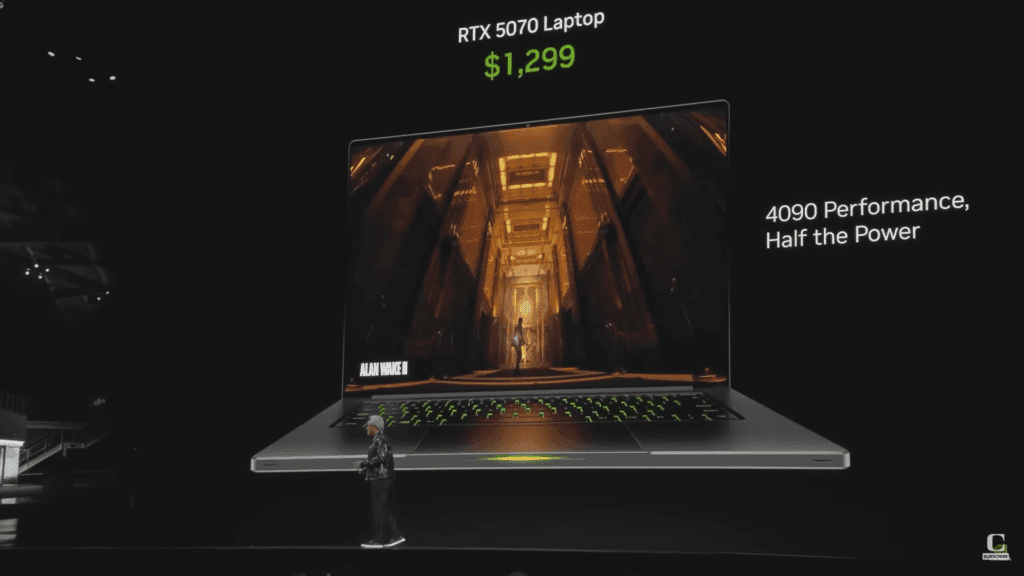
NVIDIA has also managed to bring the immense power of the RTX 50 Series into laptops. The RTX 5070 laptop, priced at $1,299, offers performance equivalent to the desktop 4090, all within a sleek 14.9mm design. This development signifies a new era for mobile gaming and content creation, where portability no longer requires compromising on performance.
Grace Blackwell NVLink72: A Supercomputing Marvel
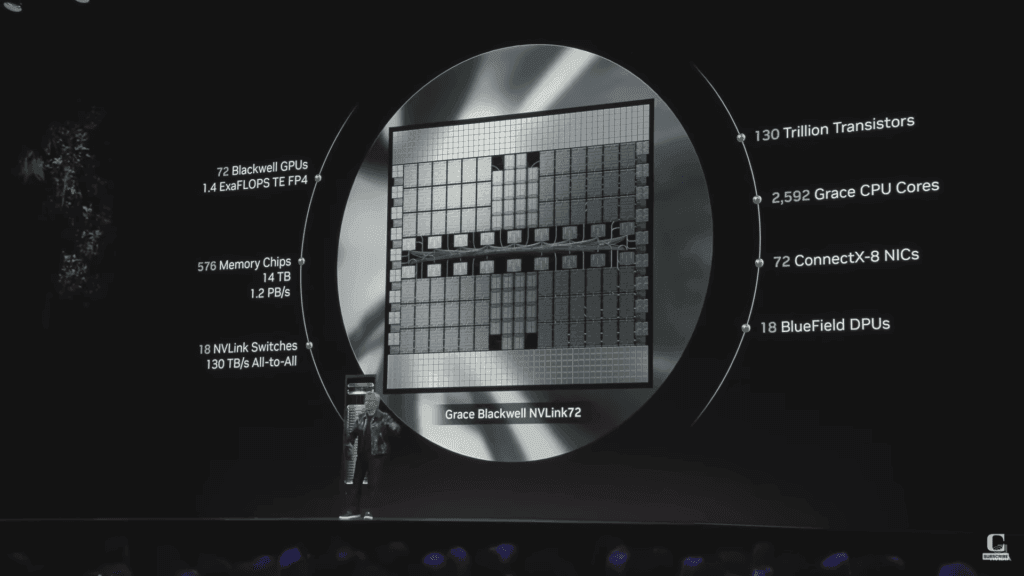
Huang unveiled the Grace Blackwell NVLink72, a supercomputing system comprising 72 Blackwell GPUs and 144 dies, delivering 1.4 exaflops of AI floating-point performance. With 14 terabytes of memory and an astounding 1.2 petabytes per second memory bandwidth,equivalent to the entire world’s internet traffic,this system represents a monumental leap in computational capabilities, paving the way for more advanced AI research and applications.
Llama Neotron Language Foundation Models
In the realm of AI, NVIDIA introduced the Llama Neotron suite of open models, ranging from small, fast-response models to ultra-large teacher models capable of knowledge distillation. These models are designed to enhance AI interactions, serving various roles from mainstream applications to evaluators and judges for other models. The Llama Neotron suite is now available online, providing researchers and developers with powerful tools to advance AI development.
NVIDIA Cosmos: The World’s First World Foundation Model
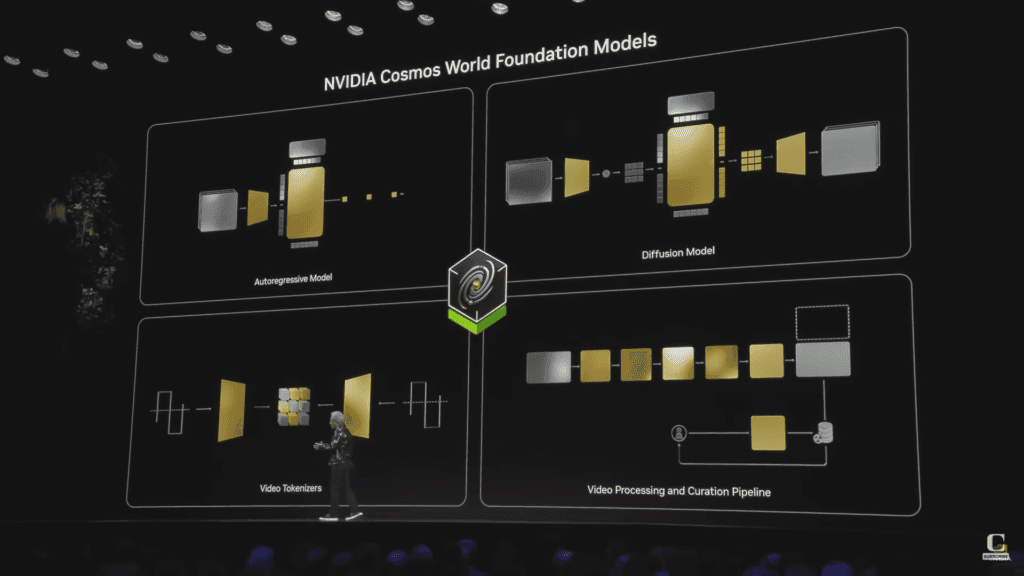
Another groundbreaking announcement was NVIDIA Cosmos, trained on 20 million hours of video focusing on physical dynamics. This model understands the physical world, enabling applications such as synthetic data generation for training models, robotics training, and multimodal large language models. The Cosmos platform includes an autoregressive model for real-time applications, a diffusion model for high-quality image generation, and a CUDA-accelerated data processing pipeline. NVIDIA has made Cosmos open-licensed and available on GitHub, fostering open collaboration in the AI community.
Thor: NVIDIA’s Next-Generation Robotics Processor
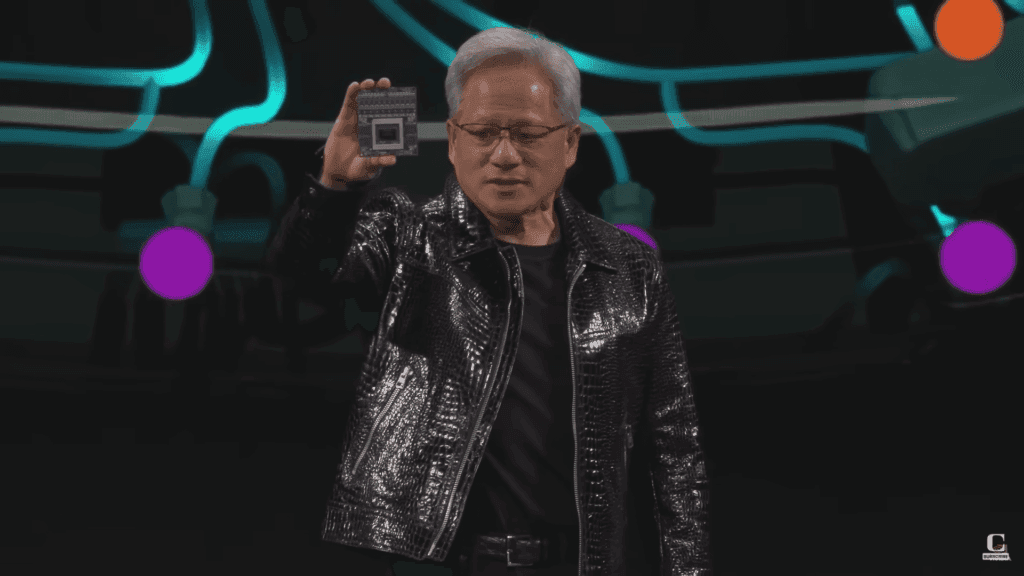
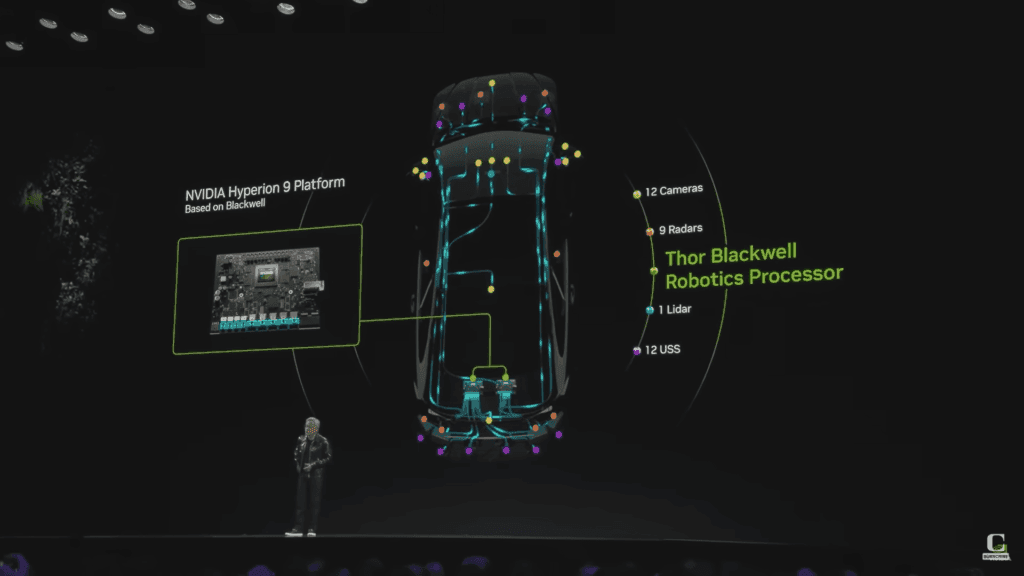
Huang introduced Thor, NVIDIA’s next-generation processor for autonomous vehicles and robotics. Delivering 20 times the processing capability of the previous generation Orin, Thor is designed to handle massive sensor information, process it, and predict paths for autonomous navigation. This universal robotics computer is now in full production, signaling a significant advancement in the field of autonomous machines.
Project Digits: NVIDIA’s Latest AI Supercomputer

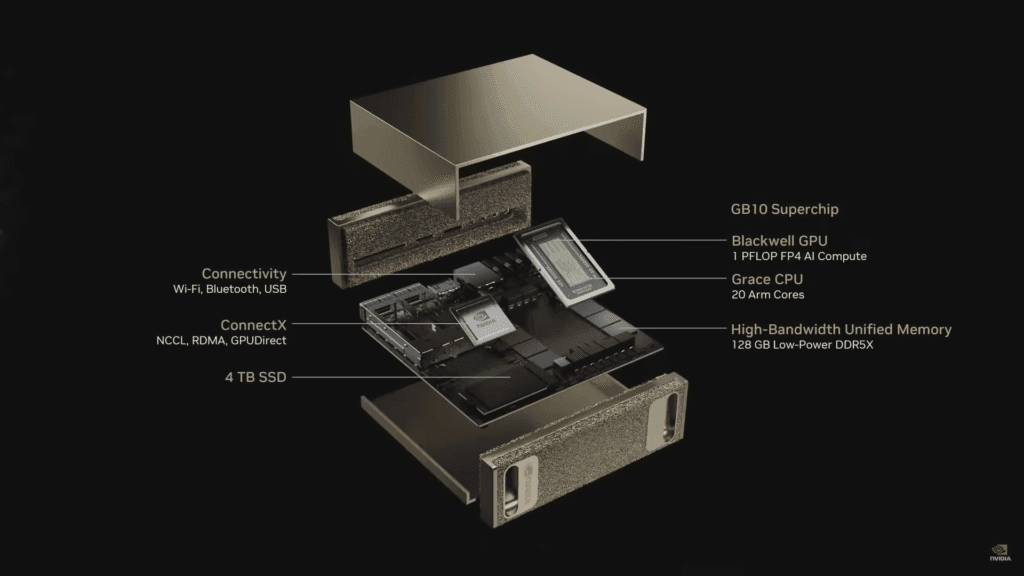
Concluding the keynote, Huang unveiled Project Digits, NVIDIA’s latest AI supercomputer. This compact yet powerful system runs the entire NVIDIA AI stack and is based on the top-secret GB110 chip, the smallest Grace Blackwell chip produced. Developed in collaboration with MediaTek, Project Digits is expected to be available around May, offering unprecedented AI capabilities in a versatile form factor.
Jensen Huang’s keynote at CES 2025 showcased NVIDIA’s relentless pursuit of innovation, delivering products and technologies that push the boundaries of what’s possible in AI and gaming. These announcements not only set a new standard for the industry but also provide a glimpse into a future where advanced computing power is more accessible and integrated into our daily lives.





